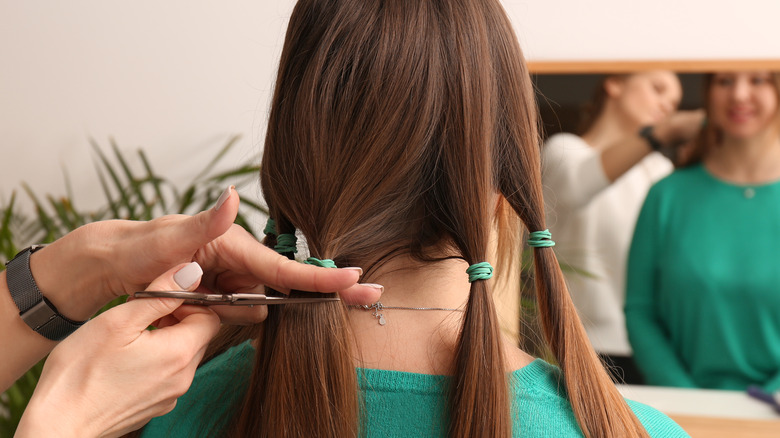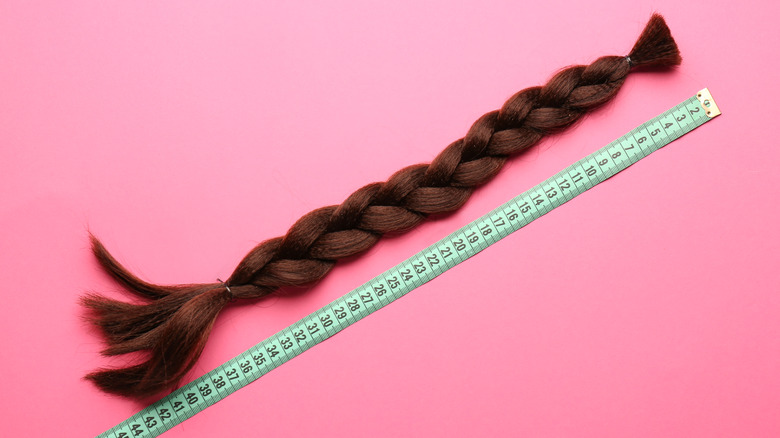The Real Reason Not Everyone Can Donate Hair
Blood and bone marrow donations are not the only kind of medical donations you can make for patients in need. Of the numerous types of medical donations you can make to health care facilities and partnered organizations, your hair is one of them. The primary use of donated hair is to create wigs for patients experiencing hair loss from cancer treatments (via Cancer.Net).
Both children and adults experiencing any kind of hair loss-related condition can benefit from donated hair. Donations are especially appreciated in instances where health insurance may not cover the full cost of a wig for a patient. According to Verywell Health, in some cases, an oncologist must issue a prescription for a wig in order for private health insurance companies to pay a portion of the cost.
While it's easy to assume that the only requirement for hair donation is length, charitable organizations have different eligibility requirements for donors. Therefore, if you are interested in donating hair, it's important to know what makes hair eligible — or ineligible — for donation.
Hair donation eligibility requirements
While length requirements will vary by organization, the most common standard is between 8-14 inches (via Cancer.Net). It's important to note that measuring should not begin at the top of the head. Hair donations are typically accepted in the form of a ponytail, so you'll need to measure healthy hair from the start of the ponytail and, if damaged, end your measurement where the hair starts to fray.
Hairstyles and hair treatments are also taken into consideration. According to Cancer.Net, some organizations will not accept hair that has been color-treated with dyes, highlighted, or bleached. Others are unable to accept hair that has been permed or dreadlocked. The requirements also vary when it comes to gray hair, so be sure to check guidelines with your organization of choice.
Other considerations include the cleanliness of hair. Hair will need to be clean and dry in order to be accepted for donation, so refrain from using any hair products (via Verywell Health). According to Wigs for Kids, should hair become wet or soiled, it may mold during transit and become unusable, so proper packaging of hair is also important. For those ineligible for hair donation due to length, there are other options available. Organizations, such as Matter of Trust, accept donations of shorter length including everything from hair, to feathers, to laundry lint to make mats that aid in soaking up oil spills.


